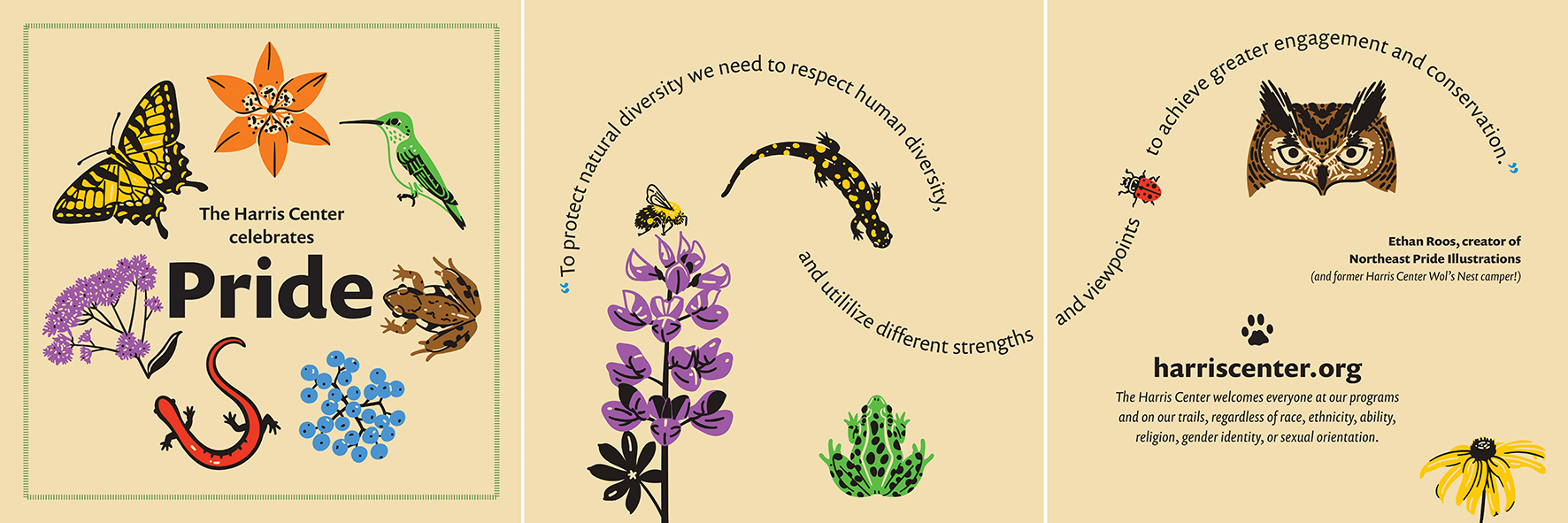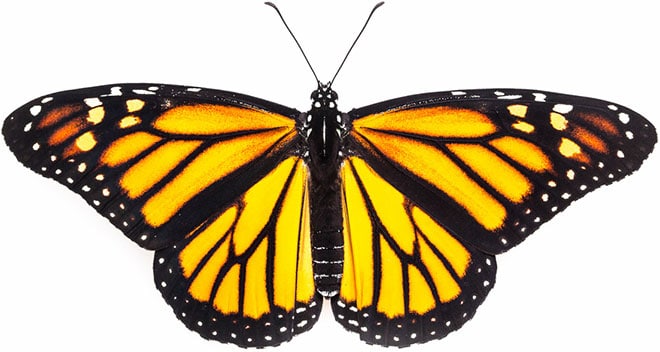
Queer science illustrator (and former Harris Center Wol’s Nest camper!) Ethan Roos created the nature illustrations found in this Pride graphic.
In honor of Pride Month, the Harris Center’s Communications Manager, Audrey Dunn — who identifies as queer — reflects on nature and conservation through a queer lens.
“There are no straight lines in nature.”
So said Annie Trowbridge, the artist who led the Harris Center course “Drawing from Nature” this past winter. We were each drawing a stick, twig, or branch that we had foraged from winter’s icy environs, guided patiently by Annie. She told us that if we looked — really looked — we would find that every stick, as straight as it might seem at first glance, was actually made up of gentle curves, anything-but-90-degree angles, tiny bumps, and other textures. She told us that the more closely we observed our branch, the more particularities we would find, and that the more of these small details we added, the more real-to-life our drawings would seem. And she was right – as I added shading and ridges and meandering lines, my twig came to life on the paper before me.
I think of her words again now. As I write this, I see evergreen yews growing outside my office window. Planted carefully in a row, they defy expectations of order, reaching for the sky in a chaos of bends and curves and stretches. Careful observation and sketching of just one of those trees could easily take days or weeks due to each of their singularities, their oddities — their “queerities.” All around us, nature is showing off her perfectly imperfect creations, her strikingly distinctive designs. Those yews root themselves firmly in the soil and take up the space they need, growing in harmony with their neighbors. And in their self-proclaimed uniqueness, they offer themselves to others: to campers seeking refuge from the sun, to chickadees sheltering in their branches during the deep cold of winter.
When we have the freedom to be ourselves — to grow with pride into our fullest, truest selves — we, too, can offer ourselves to the world like the yew trees. The dominant American culture, and significantly, the culture in which nature conservation in America is embedded, has historically valued sameness: whiteness, straightness, maleness. A rigidity and a homogeneity that is foreign to nature and antithetical to its conservation. Just as a healthy, robust, and resilient ecosystem requires biodiversity — each inhabitant growing in their own uniqueness and yet evolving undeniably as one — so too does conservation. Lasting conservation requires a diversity of talents, a fluidity of ideas, the creativity of out-of-the-box thinking, and an embrace of change and difference. A move away from the “straight” and narrow, if you will.
Our bends and curves, our queerities, they’re the best of us. They’re our offerings to the world. This Pride Month — and beyond — can we learn to embrace ourselves and one another, just as we are, just like the yews?
Find Queer Community
If you’re seeking queer community in the outdoors, check out our upcoming LGBTQ+ Community Paddle on Nubanusit Lake and Spoonwood Pond on July 15.
For more resources and outings, check out The Venture Out Project, Unlikely Hikers, Queer Hikes, and Keene Pride.

